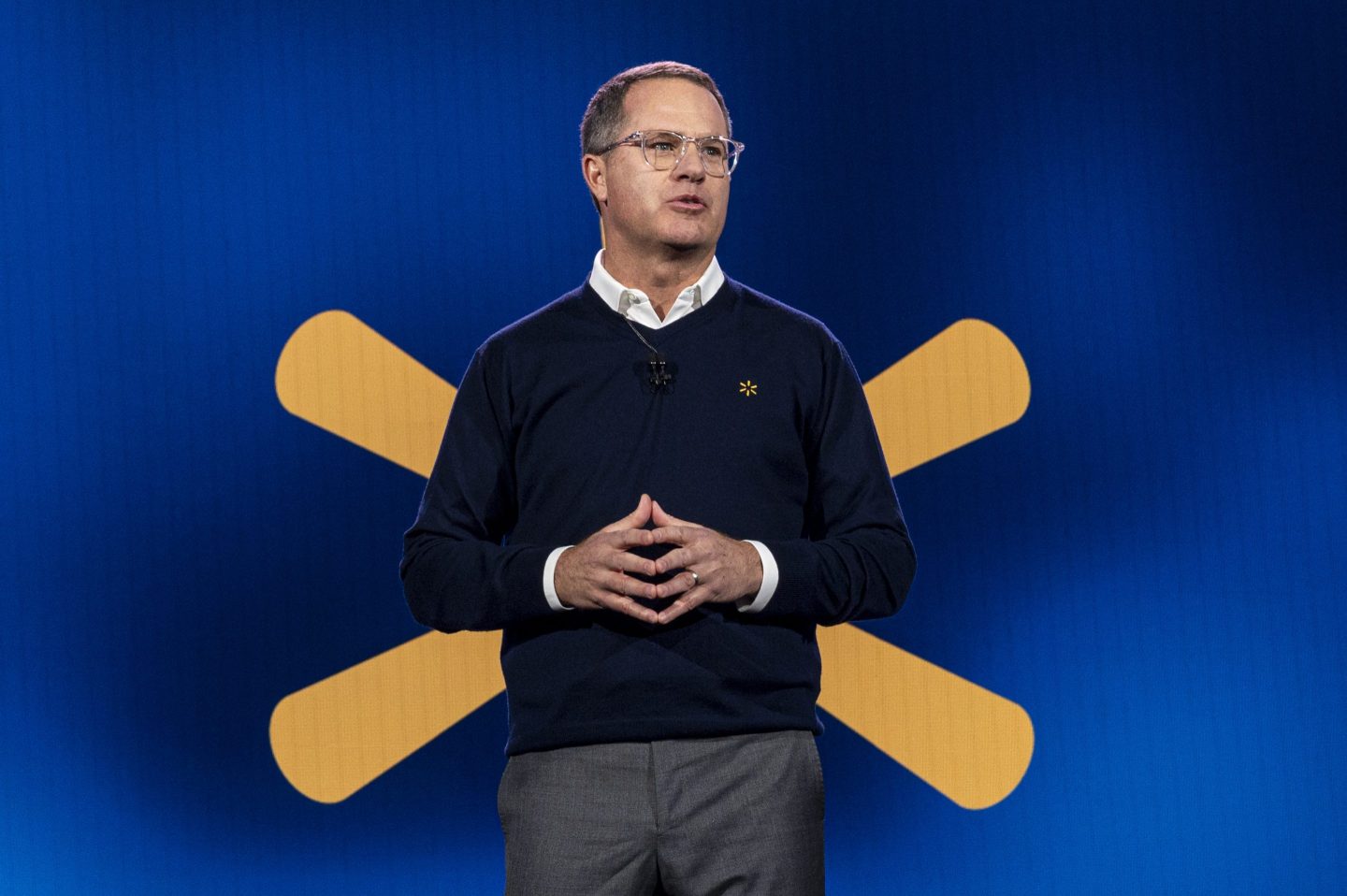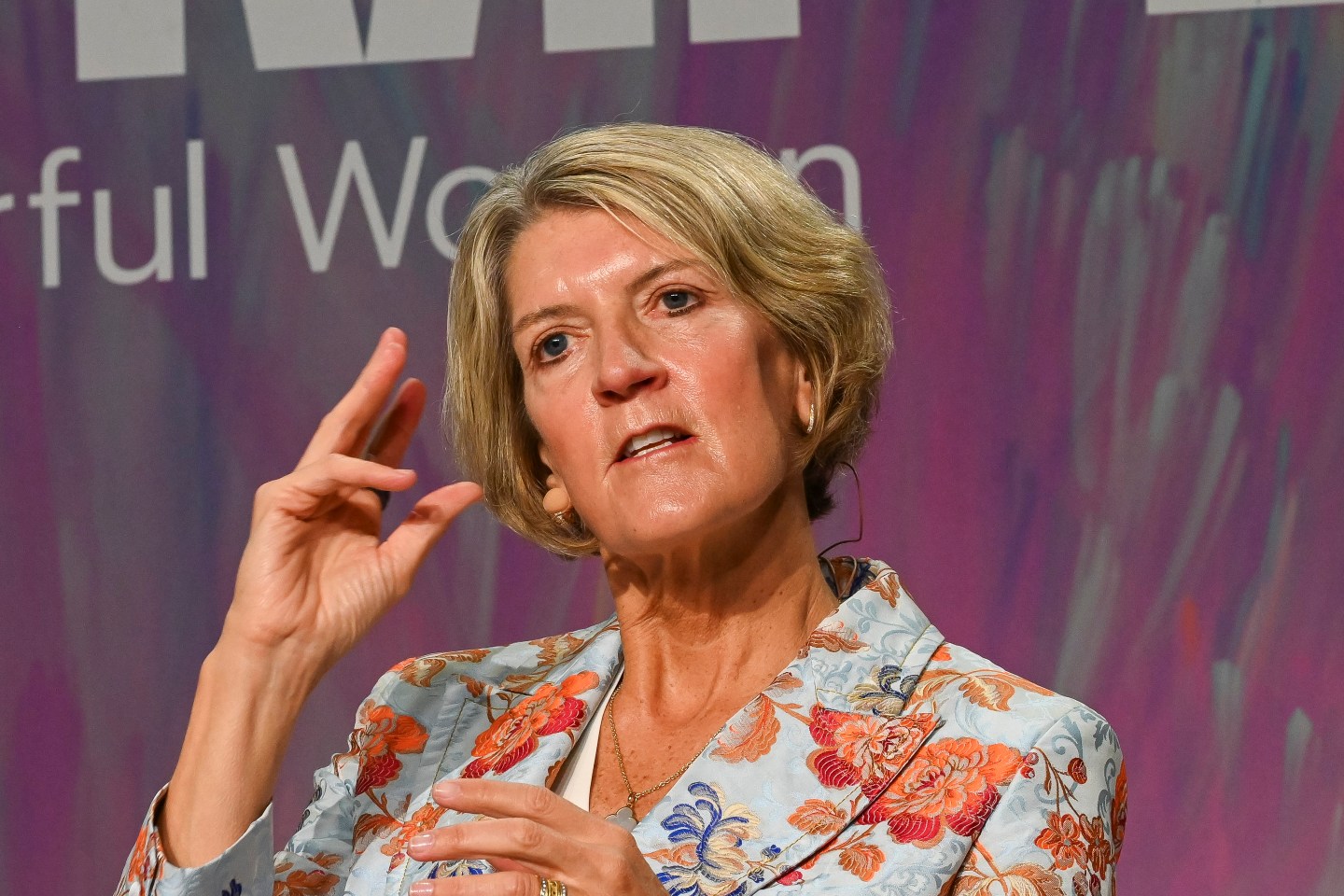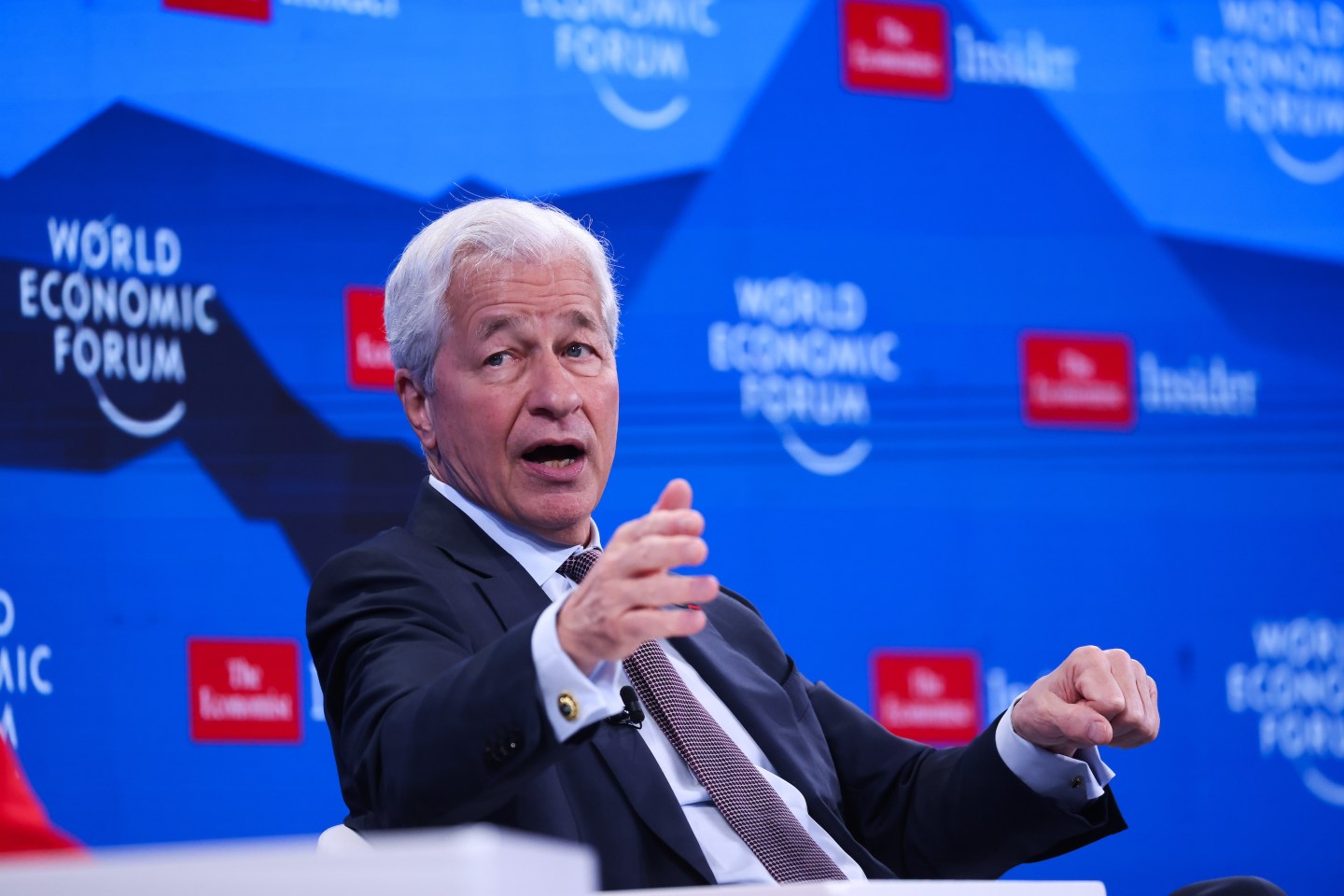- In today’s CEO Daily: Phil Wahba digs into two retail CEOs’ succession plans.
- The big story: Nvidia reports blockbuster earnings.
- The markets: Nvidia sparks a rally.
- Plus: All the news and watercooler chat from Fortune.
Good morning. This week, a pair of earnings reports—those of Walmart and Target—offer up a reminder of how tricky CEO succession planning can be. Both retailers’ CEOs—Walmart’s Doug McMillon and Target’s Brian Cornell—started in 2014 and are leaving in February, handing their companies off to lieutenants who are company lifers. But that’s where the succession similarities end.
Target and Walmart have long duked it out for the U.S.’s budget-conscious shopper, with Target skewing a bit more to discretionary “fun” items and Walmart to low-price staples. Though both chains thrived during the pandemic as people consolidated their shopping at fewer chains, Walmart pulled away from Target in 2022 and has never looked back.
Walmart has become a tech and e-commerce powerhouse capable of holding its own against Amazon and has positioned itself well for the AI era. Walmart shares have risen 300% under McMillon. In contrast, Target’s shares are only up 60% under Cornell, whose tenure was considered stellar before the retailer began struggling with merchandise misses, backlash to its diversity efforts, and then backlash for abandoning those efforts, complaints about customer service, and supply chain problems that led to empty shelves.
On Wednesday, Target reported that comparable sales were down 2.7% last quarter. Today, Wall Street analysts expect Walmart’s U.S. comparable sales to increase 3.8%.
Interestingly, one of the departing CEOs is leaving his company’s board in 2026, while the other is staying on as executive chair, meaning he will be even more powerful than he was as CEO.
You might think McMillon is the one sticking around to guide successor John Furner, who has an impressive track record as CEO of Walmart’s U.S. division. But no, Cornell is the one being elevated to a role with no defined term limit, overseeing his successor and current operations chief, Michael Fiddelke, even as both executives ultimately bear significant responsibility for Target’s current travails.
That a CEO like McMillon, whose leadership style will be taught in business schools, can step down without causing investor panic shows how well Walmart has managed its succession planning and developed a deep bench.
Target argues that Cornell and Fiddelke, well regarded executives to be fair, are insiders who can right the ship. However, Wall Street disagrees; it wanted an outsider to shake things up and has punished Target’s stock.—Phil Wahba
Contact CEO Daily via Diane Brady at diane.brady@fortune.com
Top news
Nvidia shrugs off bubble fears
Nvidia beat Wall Street’s expectations with a record $57 billion in revenue for the most recent quarter on the back of strong demand for its AI chips, quelling investor fears that the AI boom is overhyped. The world’s most valuable company implied that its Blackwell and Rubin chips could generate $300 billion in revenue next year, a sum that would catapult Nvidia into the top 10 of the Fortune 500. (It was No. 31 this year.)
Preempting AI laws
U.S. President Donald Trump is reportedly considering an executive order that would attempt to block any state regulation of AI in a concession to tech companies that argue a patchwork of such laws will stifle innovation.
Labor data gap
The U.S. Bureau of Labor Statistics says it will not release the October jobs report, citing the record government shutdown that prevented officials from collecting all the data they need. The omission will obscure the public’s understanding of how the labor market is faring amid signs of weakness.
Mexico buys American
For the first time in 30 years, Mexico is the top buyer of U.S. goods, surpassing Canada. (Mexico has been the U.S.’s top supplier since 2023 when it eclipsed China.) U.S.-Mexico trade has fared relatively well under the Trump administration since the president has repeatedly granted it tariff exemptions; the U.S.’s northern neighbor has not been as lucky.
Stocks to watch for 2026
AI has driven much of the stock market gains this year while tariffs and geopolitical tensions have rendered once-reliable investments vulnerable. Fortune’s finance editors and reporters say these are the hot—and not—stocks for 2026.
Alphabet CEO suggests AI could replace CEOs
Alphabet CEO Sundar Pichai said he believes the CEO job “is maybe one of the easier things maybe for an AI to do one day” in a recent interview with the BBC. Pichai joins other prominent CEOs, like those from OpenAI and Klarna, who’ve made similar arguments.
The markets
S&P 500 futures are up 1.07% this morning. The last session closed up 0.38%. STOXX Europe 600 was up 0.82% in early trading. The U.K.’s FTSE 100 was up 0.78% in early trading. Japan’s Nikkei 225 was up 2.65%. China’s CSI 300 was down 0.51%. The South Korea KOSPI was up 1.92%. India’s NIFTY 50 is up 0.54%. Bitcoin was flat at $95K.
Around the watercooler
The CEO of Shangri-La Hotels explains the core of Asian hospitality: Not ‘silver candlesticks,’ but ‘warmth and attention to detail’ by Angelica Ang
Nvidia CEO Jensen Huang earnings call namechecked Saudi AI company Humain three times. Here’s why by Jeremy Kahn
Deel’s CEO was told to sack his entire leadership team—he ignored other founders, kept the original $0 crew and is now running a $17 billion giant by Orianna Rosa Royle
‘Bond King’ Jeffrey Gundlach says there’s no doubt ‘we’re in a mania,’ but gold is a ‘real asset class’ by Nick Lichtenberg
CEO Daily is compiled and edited by Joey Abrams and Claire Zillman.













